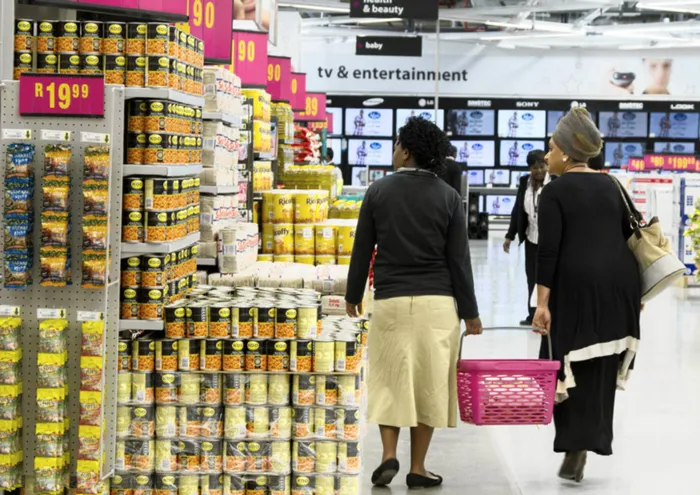Mall lease row: Massmart lodges complaint

Customers carry a shopping basket past a display of canned foods inside a Game supermarket, part of Massmart Holdings Ltd. Photographer: Nadine Hutton/Bloomberg Customers carry a shopping basket past a display of canned foods inside a Game supermarket, part of Massmart Holdings Ltd. Photographer: Nadine Hutton/Bloomberg
Massmart has lodged a formal complaint with the Competition Commission to end the lease exclusivity clauses which has restricted its Game stores from opening new shops in malls where the clause is contested by other retail chains.
The group filed a complaint against Pick n Pay, Spar and Shoprite.
Exclusivity clauses are provisions within a lease agreement at the request and the benefit of anchor tenants to prevent direct competitors form trading at the same mall.
Massmart, which owns Game, DionWired, Makro and Cambridge stores among others said the restrictions reduced competitiveness.
Retail analysts had previously said court battles facing Massmart regarding lease agreements were holding back the retailer’s plans to roll out Game FoodCo stores.
This comes after Massmart was interdicted by the Gauteng Divisional High Court from interfering with the contractual relationship between Pick n Pay and property fund Hyprop by operating a general food supermarket at the CapeGate Shopping Centre in Brackenfell in Cape Town, two months ago.
Massmart was of the view that exclusive lease agreements were anti-competitive and prevented the retailer from developing an offering that can effectively compete with the large, national retail chains.
“These clauses have the effect of enabling an entrenched clutch of anchor retailers to decide who they will compete against in malls. Sadly, the traditional reliance placed on exclusivity clauses by anchor retailers appears to have created a form of ‘contractual entitlement’ – it’s an easy option that enables the anchor retailers to contract out of competitions with new entrants,” it said.
In the high court sitting in September, Judge Johan Louw said Pick n Pay had succeeded in proving that it was entitled to a final interdict against Mass stores, a division of Massmart.
He had said the exclusivity right contained in this clause of Pick n Pay’s lease agreement was directly connected to its rights in terms of the lease and obliged Hyprop not to permit any business listed in the clause to be carried out in the mall during the currency of Pick n Pay’s lease. Hyprop had accepted that it was bound by this obligation, adding that a clause in its lease prohibited Masstores from trading as a general food supermarket. Massmart was therefore in breach of this clause in its lease agreement.
However, in its submission to the commission on Friday, Massmart said customers had welcomed the introduction of fresh food into Game stores.
“Food sales growth, general merchandise sales growth and sales-density growth have all been higher on average in stores in which Game introduced fresh food compared with stores that did not have the offering.”
This is second time Game stores faced such resistance from its competitors. Massmart was temporarily prohibited by the high court in June from opening or operating a FoodCo outlet in the Game store at the Liberty Midlands Mall in Pietermaritzburg, until arbitration proceedings on this issue were finalised.
Massmart said it was confident that it had a compelling case that would undermine the reliance that anchor retailers placed on exclusivity clauses in order to reduce competition in shopping malls. “The company has indicated that [it] is open in collaborating closely with the Competition Commission in their investigation of the matter.”